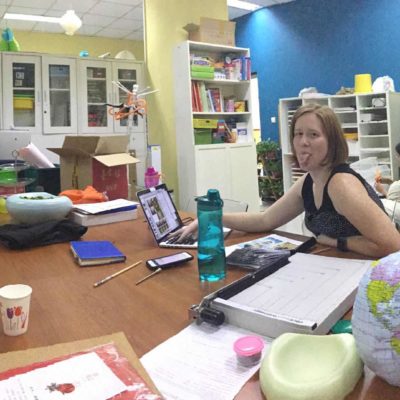Nov. 13, 2016
11:30 pm
Beijing, China
Hola mis amigos,
Yeah, I have no idea why I just spoke Spanish. It just felt right. Whatever. Anywho…
So I was talking to Dad this evening and he was asking me some questions about my work. After we spoke for a while, he mentioned that I should discuss this stuff on my blog. He said that you’d all be a lot more interested in that than a schedule of what I did all day. Sorry if this blog has turned in to that. I promise I’m trying to keep it interesting. Anyway, I figured today would be a good day to talk about some of those things.
The first question Dad asked me is, “So how do you teach? Do you try to use some Chinese or is it all English and you just hope they pick it up.” But I’m actually going to start with a more basis question.
What do you do?
I am an English as a Second Language (ESL) teacher with EF – English First. I work at center “Beijing 12” with 11 other teachers. I work in the “Kids and Teens” division, meaning that I teach children and youth between the ages of 3 and 18 years old. The classes are split up by age group: Small Stars (3-6), High Flyers (7-10), Trail Blazers (11-14), and Front Runners (15-18). The curriculum for each group is designed to target those ages specifically and each group is broken down into 4 to 8 different levels. For Small Stars, the levels are based on age. For all others, though, the levels are based on language proficiency. So far, my classes include all the groups except Front Runners.
How do you teach the language?
At EF we teach by emersion, meaning we try to speak only English when teaching the students. We want to teach them naturally, not by translating English into Chinese. That being said, we do realize that sometimes, depending on the student and topic, concepts need to be explained in Chinese for better understanding. With all Small Stars and High Flyers classes the teacher is also joined in the classroom by a Teacher’s Assistant. These assistants are often students who attend the local university and are working at EF to fulfill their internship requirement needed to graduate. They are in the room to help explain things to students if they can’t understand and to help with behavior management.
Now these TAs are both a blessing and a curse. They’re wonderful people and they’re great resources to have in the classroom. Unfortunately, we have two different types of TAs: those who can speak English well and those who can barely speak English. Those who don’t speak English are really tough because they can’t really translate for the students and they can’t understand any instructions the teachers give them. Also, some TAs, even those who speak English well, aren’t always the best at following directions. It’s just hard to utilize them as a resource when you can’t communicate well.
Other than the TAs, though, we try to speak only English while in the classroom. The students know that they aren’t supposed to speak Chinese. Of course, this rule is lenient. If a student is speaking to try to understand, they’re not going to get in trouble. If a student’s just talking to talk (like any child would), then they get called out for it. As they get into the higher levels, Chinese is less tolerated, as they have the ability to reason in English. And students in classes taught by a local (Chinese) teacher or an international teacher who speaks Chinese get away with a lot more Chinese in the classroom, simply because the teacher knows what they’re saying. In my classes, though, there is little Chinese, because I don’t know what they’re talking about.
What does a class look like?
Unfortunately, I can’t really show you my lesson plans, but I can tell you a bit about my classes. So we’ll take two classes that I taught today. One is a Trail Blazers 6 class I co-taught a little bit of with Gretchen and one is a Small Stars B that I taught by myself. On Saturdays and Sundays, most of the class times are 2 hours with a 15 minute break in the middle. On the weekdays, the classes are only an hour. For each course, though, the students are only in center for 2 hours every week, whether on two different days or one day.
Trail Blazers: This class is based a lot on book work. Students at this age are much more grammar and spelling focused and don’t do a lot of games. Also, the EF product for this age group is about to be replaced, which is great because this product is not their best. I’m not really the best to explain the way this class works because I’m still trying to figure it out for myself. Anyway, a class starts with a quick warmer, usually a get-to-know-you game or a review. Today we split the class into two teams and had them ask each other a few questions. Then we moved on to the first lesson. Gretchen taught all of this lesson. First, she asked them some warm up questions for the topic (video games). Then, they did a couple of work book activities. She had another discussion with them about the topic, expanding on concepts and introducing new vocabulary. Then they finished up the workbook activities. After they finished, they were able to go on break. When we came back, I taught the first part of the next lesson. I did another quick warmer to introduce myself and then we watched a video from their curriculum. I led them through the two activities associated with the video and then started introducing prepositional pairs (when one word is often paired with a specific preposition, like “sorry about” or “frustrated with”). Unfortunately, I had to leave before the lesson was over, so I didn’t get to see the end.
Small Stars B: This group is a lot less based on grammar and more on natural language. These kids are still learning the basics of English. This is where I spend most of my time, so I know a lot more about these classes than the other three groups. For this group of kids, this was their first class at this level, so many of them have different abilities. For example, some students were in the level before, but not all. Therefore, when I asked them “What’s your name?” some were able to answer while others didn’t even know their English name. The class always starts with a warmer. We usually sing the “Hello Song” (an EF specific product) and go over our classroom rules. Then I greet the kids one by one. Today I used a soft ball to pass to a student. I would say, “Hello, I’m Kristen. What’s your name?” They had to respond with, “I’m ___.” After our greeting, I write their name on the whiteboard and start our behavior management system (we use stars, stickers, and stamps. I can explain that later, but not today). Then we do a review of what they learned last time. Even though this was the first level of this lesson, we review what they had learned in the level before, aka body parts. We then play a quick review game and move on to our new vocabulary. I introduce the new vocabulary using large flashcards. After group and individual practice, we play a couple of games. One game focuses on accuracy–saying the vocabulary correctly–and one focuses on fluency–using the work naturally. We then do a couple of activities on the whiteboard before I introduce the bookwork. While they do their bookwork, I normally check homework and/or monitor them. The TA is also there to monitor. After they’re finished, we usually try to play one more game before they head home. Basically, the whole idea is to practice the vocabulary over and over again, but to make it fun. If it’s a two hour class, like it was today, I just repeat this same process for the second hour.
How do you plan a lesson? What are your resources?
EF has a software product called Athena. It is where all of the lesson plans and resources (like videos, songs, and whiteboard activities) are located. But the lesson plans on there are very basic and kinda boring. It’s up to the teachers to supplement them with their own activities and ideas. I have a really great resource in addition to this. It’s called My Team! Seriously, my team is the best. Gretchen has lesson plans stored on the G: Drive (our shared drive over the EF network at our center) and let’s us borrow them as a starting point. I always look over her lesson plans for a general outline/overview, then the Athena lesson plans for a bit more detail, and then I combine them to form my own. Also, Adam is great. He really challenges me to be creative and figure out new things to do. The other teachers are also great to bounce ideas off of and ask questions. And, of course, we have access to the Internet to use more realistic examples. So far it’s taken me about an hour to plan each of my lessons.
Wow, that’s a lot of information. And it’s all the questions I can think of answering right now. If you have more, feel free to leave a comment here or on Facebook. I will warn you, if you leave the comment of a Facebook share that is not my own, I probably won’t see it. Your best bet is to leave it at the bottom here. I promise, if you leave a question, I will do my best to answer soon. Also, feel free to leave other questions that aren’t related to work. Like Dad asked, “How much Chinese are you learning?” I’m going to try to answer that one in another blog. But really, ask me anything. Actually it’ll help me figure out what topics I should write on.
Words to Remember: 1 Timothy 4:10-16
Challenge: I really like this one. Read through the scripture twice. “On a scale of one to ten, one being spiritual flabbiness and ten being spiritually fit, how would you rate your spiritual fitness?” (“Solo”, 317) How well would you rate yourself in the five areas: word, demeanor, love, faith, and integrity? P—y that Abba would help strengthen the areas where you feel weak and continue to build up the areas that you feel strong. As you go about your day, try to remember these five areas. How can you do more to “teach” about Abba’s love?
保佑,
Kristen





Victoria Middlebrooks
Hi Kristen,
My name is Victoria and I am currently a sophomore at ONU! As a student fundraiser, I had the pleasure of speaking with your dad on the phone this evening. I would first like to start off by saying I enjoyed hearing about both his and your experience while attending ONU. During our conversation, we got on the topic of travel, which is no surprise that your name came up! I read through a few of your blogs, and I have to say your job sounds AMAZING! I think it is so awesome that you get to combine you love for traveling and passion for helping other! I too share the same interest! I hope to be able to travel while I am in my undergrad years (your dad gave me a little bit of information about the ‘Semsest at Sea” program that you were able to attend…Again, this sounds awesome!) I think it is great that Ohio Northern has helped give you these opportunities, and I hope some day to have the same. Thank you for blogging because you have inspired me to continue to follow my dreams! Keep up the great work!
Have a great night (or day I’m not sure what time it is for you!),
-Victoria